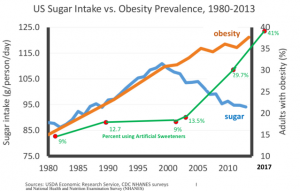This week Sally Estlin and I discuss why fats are so important in your daily diet. Don’t be scared of FATS they are so GOOD for you! We need fats for so many reasons including brain function, optimal cellular activity, for our senses and hormones and essential nutrient transport. They make your skin glow, your hair healthier, they fuel your body and leave you feeling full for longer. There are so many benefits! Fats fuel your body, help you function more effectively and help you feel more FABULOUS! Good fats can heal you and make you lean, while sugar and carbohydrates make you fat. Do you eat enough good fat?
Fats don’t make you fat because they
- Increase the amount of energy you use
- Increase a feeling of satiety or fullness
- Reduce a feeling of hunger
- Slow down your metabolism
Good fats are essential for wellbeing because they
- Supply nutrients to the brain which is 60% fat
- Maintain the insulation (myelin sheath) around every nerve in your body
- Increase concentration and processing speed
- Improve mood by lifting dopamine
- Make food taste better
- Help to support healthy skin and joints
The quality of the fats you eat really matters
Not all fats are made equal. [5] In recent years much has been made of the health risks associated with saturated fats. However, a review of 48 studies found no evidence that reducing the consumption of saturated fats lowers the risk of heart disease or stroke. [2].
There is a consensus that the monounsaturated fats found in avocados, nuts, seeds and olives, grass-fed meat, eggs and butter are both nutritious and healthy.
The polyunsaturated fats deliver Omega 3 (O3) and Omega 6 (O6) fatty acids. The typical affluent diet delivers too much O6 and too little O3. This is undesirable because the O6’s are inflammatory and the O3’s are anti-inflammatory, blood thinning and pressure lowering. A balanced ratio of O3 to O6 is essential for optimal health and wellbeing because the ration in the brain is 1:1. The typical surplus of O6 in affluent diets raise the risk of heart disease, stroke, diabetes, and arthritis.
- Omega 3’s are found in Flaxseed, oily fish and the products of grass-fed animals
- Omega 6’s are found in sunflower, safflower, sesame corn walnut and soya oils. Also found in non-oily fish, shellfish and grain-fed meat.
The most unhealthy fats are transfats or manufactured fats which stabilise and solidify liquid fats through a process called hydrogenation. They are most common in fast foods, packaged foods and raise the risk of heart disease, cancer and Type 2 diabetes.
Why low-fat diets are undesirable because
- To make such food palatable, manufacturers add lots of sugar and this is unhealthy for the heart. [1]
- It involves transforming a natural food into something different. This transformation by manufacturers tends to reduce the nutrition of the food.

- They tend to taste awfully bland or far too sweet
- Artificial sweeteners are best avoided because of all the associated long-term health risks
If you would like to take the next step with Harry Armytage, complete the listening scorecard here
To find out more about what Sally Estlin does, head here
[1] Hyman, M. Eat Fat, Get Thin: why fat we eat is the key to sustained weight loss and vibrant health, Little Brown, 2016 [2] Hooper et al, Reduced or modified dietary fat for preventing cardiovascular disease. Cochrane Database System Rev July 2011. [3] John Briffa, Escape the diet trap – lose weight without calorie counting, extensive exercise or hunger, Fourth Estate, 2012, [4] Schmidt, M. Brain-Building nutrition, Frog, 2007 [5] Erasmus, U. Fats that Heal, Fats that Kill, Alive Books, 1993

